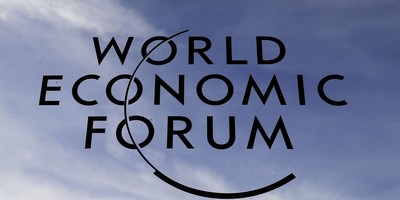Did you hear about the new bill that would allow the U.S. government's official overseas information agency to rebroadcast its content onto American TV and radio? The bipartisan Smith-Mundt Modernization Act of 2012 was introduced in Congress last week by Reps. Mac Thornberry (R-Texas) and Adam Smith (D-Wash.), both of whom are presumably dissatisfied with their satellite TV package and think more government-produced content would go down better with an after-work beer.
Not really. As Thornberry explains on his website: "While the Smith-Mundt Act of 1948 was developed to counter communism during the Cold War, it is outdated for the conflicts of today. Effective strategic communication and public diplomacy should be front-and-center as we work to roll back al-Qaeda's and other violent extremists' influence among disaffected populations. ... To do this, Smith-Mundt must be updated to bolster our strategic communications and public diplomacy capacity on all fronts and mediums -- especially online."
I see. So the Smith-Mundt Act was strictly limited to countering communist propaganda overseas, because the idea of conducting government propaganda operations within a country at a time when Joseph Goebbels was a household name would have triggered post-traumatic stress. Thornberry says the legislation is uselessly dated because terrorism is now our main security threat, and it's not just based overseas. So, he says, the federal government's foreign-information services have to be able to reach terrorists where they live -- and that means inside America.
All right, and while we're at it, why don't I just submit verbatim copies of press releases I receive from various federal government departments so you can read them in this space each week? Government or otherwise, I don't reflexively trust anything that anyone tells me. If someone said the sky was blue, I'd look out the window and ask two more people if it looked blue to them as well. It's the very least of the media's responsibilities.
Recommended
And I'm especially skeptical when I know that the source of any given information has an agenda. In the case of the U.S. government's Broadcasting Board of Governors and Voice of America information services, Thornberry describes the proposed domestic objective as "remov(ing) a barrier to more effective and efficient public diplomacy programs."
There's certainly no barrier to anything online. The firewall is effectively limited to traditional media. Anything delivered as a pre-packaged item to the conventional media from the government or any other source should be vetted, tested, evaluated and packaged appropriately before being presented to a larger audience.
Even when an event occurs overseas, as in the case Thornberry cites, whereby Sirius Satellite Radio couldn't get the green light under the Smith-Mundt Act to carry live Voice of America broadcasts in the Creole language from the 2010 Haiti earthquake zone, I'm sure there are foreign correspondents, credible freelance journalists and other reliable independent analysts who would provide an adequate, objective take on events. If any of them prove inept or biased, then the free market will weed them out. Americans who are interested in such coverage will find the best alternative available to them. It's not only unnecessary for the government to create legislation in order to insert itself into this domain, but also a slippery slope.
Moreover, a peacetime natural disaster is a horrible example, since it represents the sole instance in which it's already legally acceptable for the government or military to conduct an information operation on a domestic audience to support noncombat activities such as evacuations, per a Clinton-era executive order. If that's still insufficient, then how about amending just that part?
I don't doubt that Voice of America journalists are as credible and objective as their counterparts elsewhere, and this isn't about Americans having access to journalism. It's about the possibility of opening a Pandora's box whereby the federal government would be able to produce content for an American audience via an entity over which it has full control, and which has historically served as an official government communications instrument.
Worse, it won't be operating domestically as a stand-alone station. Instead, content would be seamlessly rebroadcast through private media outlets, possibly without the viewer being fully aware of its provenance. The U.S. Army's psychological operations manual qualifies psychological warfare (PSYOP) and information operations (IO) as "influencing the behavior of foreign target audiences to support U.S. national objectives." A "white" official PSYOP product with a clear source risks turning into a "gray" PSYOP product as the source becomes murkier, non-official, and dissolves into the domestic mass media.

























Join the conversation as a VIP Member